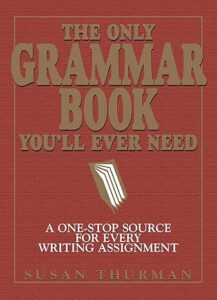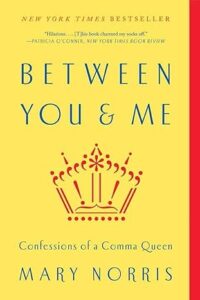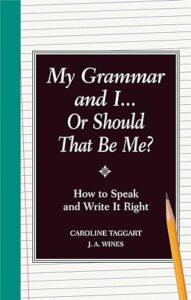Difference Between “Affect” and “Effect”: Explanation and Examples
English is a language rich with words that sound similar but have different meanings…
This can often lead to confusion, especially for those who are still learning the language.
Among these commonly confused terms, two words frequently mix people up:
“Affect” and “Effect.”
In this article, we’re going to clear the air once and for all. We’ll dive into WHAT each word means, HOW to use them correctly, and some EASY TRICKS to remember the difference.
So, let’s get started and tackle this mix-up head-on!
Short Answer
“Affect” is usually a verb, meaning to influence or make a difference to something.
For example, “The weather can affect your mood.”
“Effect” is primarily a noun, referring to the result or outcome of something.
For instance, “The effect of the new law was noticeable.”
Remember, if you’re talking about an action or influence, use “affect.” If you’re discussing a result or outcome, “effect” is your word.
Definition of “Affect”
“Affect,” when used as a verb, means to have an impact on or influence something.
It’s about causing change or making a difference in a situation, person, or object.
“Affect” can also be used in psychology to describe an observable expression of emotion.
But!
In everyday usage, it’s mostly about influence.
10 Ways to Use “Affect” in Your Daily Grind
“The amount of sleep I get affects my concentration at school.”
“Watching too much news can negatively affect your mental health.”
“The new school policy will affect how students use technology in the classroom.”
“Our choice of words can deeply affect people around us.”
“Changes in climate affect the migration patterns of birds.”
“Eating healthy food affects my energy levels throughout the day.”
“The economic downturn has affected the job market significantly.”
“Social media trends can affect fashion among teenagers.”
“The type of music I listen to affects my mood.”
“Global events can affect local economies in unexpected ways.”
*Remember, “affect” is all about the influence or impact one thing has on another!
Definition of “Effect”
“Effect” is a noun that refers to the result or outcome caused by something else.
It’s the change that happens due to an action or other cause.
When you talk about the “effect,” you’re focusing on the end-result or the impact that has been produced.
How to Use the Word “Effect” in Ordinary Life
“The new recycling program had a positive effect on the community’s waste management.”
“The movie’s special effects were really impressive.”
“Regular exercise has a beneficial effect on your overall health.”
“The effect of the teacher’s encouragement was seen in the students’ improved grades.”
“The medication had an immediate effect on relieving the symptoms.”
“Social media has a significant effect on modern communication.”
“The effect of global warming is evident in the changing weather patterns.”
“His kind words had a calming effect on her.”
“The economic crisis had a profound effect on global markets.”
“The new manager’s strategies had a noticeable effect on the team’s performance.”
*In everyday life, “effect” is the go-to word when you’re talking about the outcome or result of an action or event.
Practical Tips for Distinguishing Between Affect and Effect
| # | Affect (Verb) | Effect (Noun) |
| 1 | To influence | A result |
| 2 | “Your decision will affect the outcome.” | “The effect of your decision was surprising.” |
| 3 | Implies an action | Implies a consequence |
| 4 | Often used in emotional or subjective contexts | Often used in more objective or scientific contexts |
| 5 | Change is ongoing | Change has occurred |
| 6 | “The weather can affect your mood.” | “The weather had a gloomy effect on the picnic.” |
| 7 | Active process | Completed outcome |
| 8 | “The teacher’s feedback will affect my writing.” | “The teacher’s feedback had a positive effect on my grades.” |
| 9 | Subtle or indirect impact | Direct or clear outcome |
| 10 | “Lack of sleep affects concentration.” | “The effect of lack of sleep is poor concentration.” |
List of Sources to Improve Your Grammar
“The Only Grammar Book You’ll Ever Need: A One-Stop Source for Every Writing Assignment” by Susan Thurman and Larry Shea

This book is a comprehensive guide covering a wide range of topics from grammar and punctuation to writing essays and research papers. It’s an excellent resource for both beginners and advanced learners.
“Between You & Me: Confessions of a Comma Queen” by Mary Norris

Written by a longtime copy editor for The New Yorker, this book blends grammar advice with humorous anecdotes. It’s a delightful read for anyone interested in the quirks and intricacies of the English language.
“My Grammar and I (Or Should That Be “Me”?): Old-School Ways to Sharpen Your English” by Caroline Taggart and J.A. Wines

This book offers a nostalgic yet practical look at grammar and language. It’s perfect for those who want to brush up on their grammar skills and enjoy a bit of language history.
“Dreyer’s English: An Utterly Correct Guide to Clarity and Style” by Benjamin Dreyer

Written by the copy chief of Random House, this guide offers a modern look at English usage. It’s filled with witty and informative advice on how to write clearly and effectively.
“Grammar for Dummies” by Geraldine Woods

Part of the popular “For Dummies” series, this book provides a straightforward approach to understanding grammar.
It’s laid out in an easy-to-follow format with plenty of examples and tips.
Each of these books offers a UNIQUE approach to mastering English grammar and style, making them valuable resources for anyone looking to improve their writing and communication skills.
